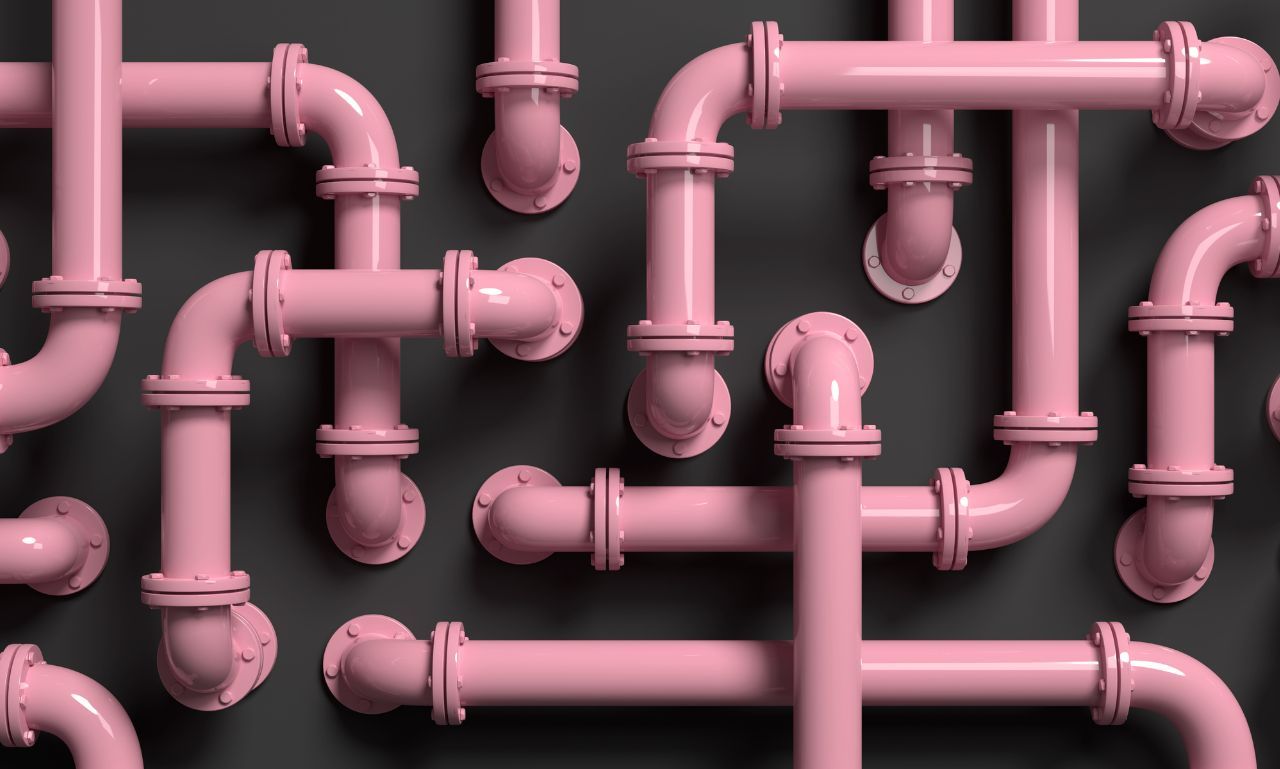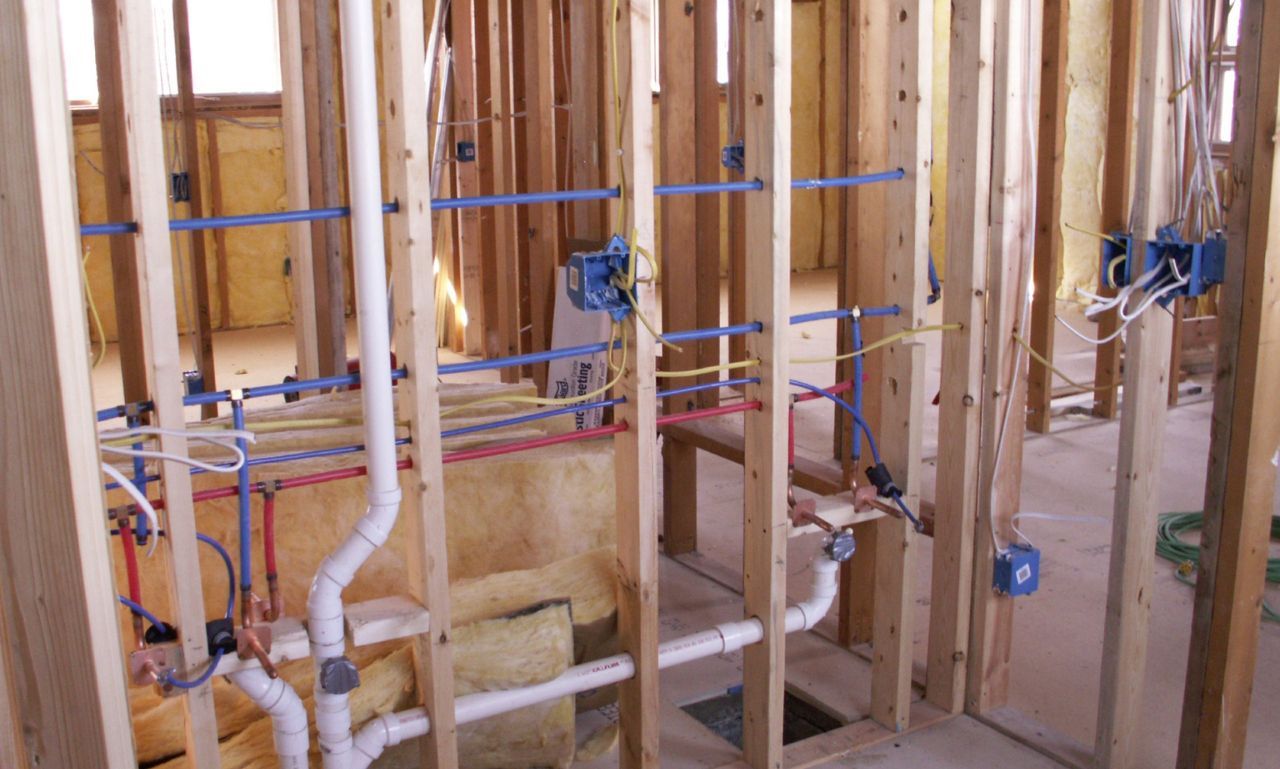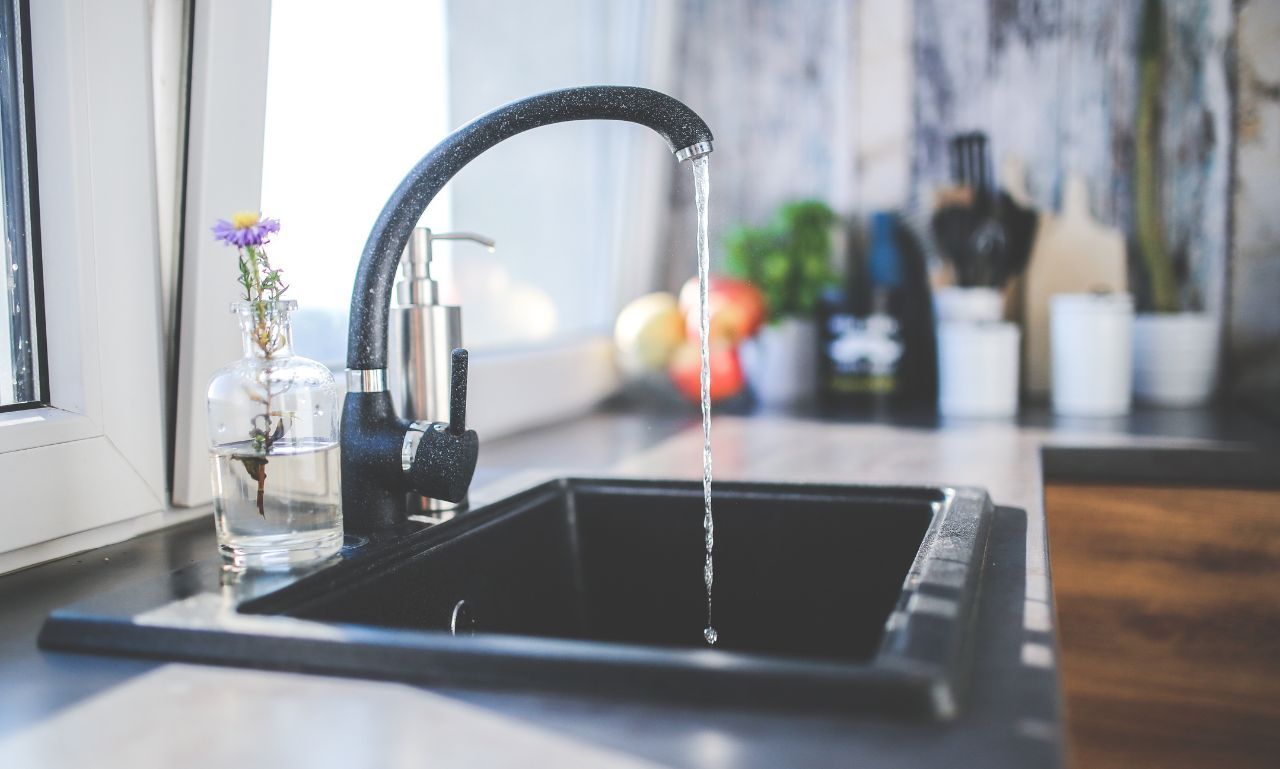Replumbing a house is a significant project that homeowners often face when dealing with ageing or failing plumbing systems. This process involves replacing old or damaged pipes to ensure a safe and reliable water supply. While necessary, replumbing costs can vary widely based on several factors. Understanding these costs can help you plan your budget and make informed decisions. Before starting this project, let's explore the key elements influencing replumbing costs and everything you need to know.
Main Factors Impacting Replumbing Costs

Diameter of Piping
The size of your pipes plays a significant role in your total replumbing cost. Professional plumbers use different pipe sizes throughout your home. Your main water line typically requires 3/4-inch to 1-inch pipes for proper water flow. These larger pipes cost more per foot.
Bathroom fixtures usually need 1/2-inch pipes for optimal performance, and kitchen appliances might require varying pipe sizes. The cost difference between pipe sizes can be substantial. Larger diameter pipes use more materials and cost more to install. Most homes need a combination of pipe sizes for different purposes. Your plumber will determine the correct sizes for each area.
Size of the House
Your home's square footage directly influences the total replumbing cost. More space means more pipes and more labour hours. Replumbing a 1,000-square-foot home typically costs between $4,000 and $6,000, and the price increases with each additional square foot.
Multi-story homes require special consideration for vertical piping. Each floor adds 20-30% to the total cost. Larger homes often need additional water pressure solutions, such as pressure-boosting systems or larger pipes. The layout of your home affects installation complexity. Homes with open floor plans usually cost less than homes with many separate rooms.
Inspection Cost
Professional plumbing inspections typically cost between $200 and $400. This crucial step identifies potential problems before work begins. Most areas require at least two inspections during the project. The initial inspection reveals the scope of necessary work.
Final inspections ensure all work meets local building codes. Some regions mandate additional inspections for specific changes. Your inspector will check every pipe and connection. They look for leaks, corrosion, and potential future problems. Quality inspections can save thousands in future repairs. They help prevent unexpected issues during the replumbing process.
Labour
Professional plumbers charge between $45 and $200 per hour for their expertise. More experienced plumbers often command higher rates. Labour typically accounts for 40-60% of your total replumbing cost. Complex installations require more time and skill.
Most whole-house replumbing projects take 3-5 days to complete. Your home's size and complexity affect the timeline. Emergency replumbing services cost more than planned projects. Weekend or holiday work often incurs premium rates. Skilled plumbers often warranty their work for several years. This protection justifies their higher labour rates.
How We Get This Data
I maintain relationships with plumbing contractors nationwide. They regularly provide real-time quotes and project costs. My team analyses thousands of completed replumbing projects each year. We also track material prices and labour rates across different regions.
We verify our data through actual customer receipts and feedback. Local market conditions influence final costs significantly. Professional associations share pricing trends with us monthly. This helps us maintain accurate, current cost estimates. Our database includes projects of all sizes and complexities. This comprehensive approach ensures reliable cost information.
Type of Pipe Material
PEX pipes remain popular for their flexibility and durability. They cost between $0.50 and $2 per linear foot. Copper pipes offer excellent longevity and reliability. Expect to pay $2 to $4 per linear foot for copper. CPVC provides a cost-effective alternative at $0.50 to $1 per foot. This material works well in many applications.
Each material has specific advantages and limitations. Your climate and water conditions affect the best choice. Installation costs vary between different pipe materials. Some require special tools or expertise to install correctly.
Permits
Local permit costs typically range from $100 to $500. These fees protect you by ensuring proper oversight. Some cities require multiple permits for different aspects. Plumbing, construction, and water connection permits may be separate.
Permit costs vary significantly between locations. Urban areas often charge more than rural regions. Working without proper permits risks expensive penalties. It can also create problems when selling your home. Your plumber should handle permit applications for you. This ensures all paperwork meets local requirements.
Number of Plumbing Fixtures
Each fixture connection adds $200-400 to your total cost. This includes labour and materials for proper installation. A typical bathroom contains 3-4 separate fixtures, and kitchens usually have 2-3 fixtures requiring a connection.
Laundry rooms and outdoor spigots count as additional fixtures. Each connection point needs careful consideration. Complex fixtures, like jetted tubs, cost more to connect and often require unique plumbing configurations. The quality of your fixtures affects installation costs. Premium fixtures might need additional support or special fittings.
Accessibility
Easy pipe access significantly reduces labour costs. Basement or crawl space pipes usually cost less to replace. Pipes hidden in walls require careful removal and repair. Wall repair costs add to your total project expense. Second-story plumbing often costs more to access. Working at heights requires additional safety measures.
Tight spaces increase labour time and difficulty. Some areas might need special tools or approaches. Good access can save hundreds in labour costs. Consider this when planning your replumbing project.
Mobile Home Repiping
Mobile homes typically cost $1,500 to $4,000 to replumb. Their compact design often simplifies the process. These homes usually have more accessible plumbing systems. This reduces labour time and overall costs. Mobile homes need specialised fittings and connections. These materials might cost more than standard home parts.
Some mobile homes require specific pipe materials, and local codes often dictate acceptable options. Professional experience with mobile homes matters significantly. Not all plumbers specialise in these unique systems.
Soil Conditions
Your soil type affects external pipe installation costs. Clay soil requires more labour and specialised equipment. Sandy soil allows easier pipe installation and access, which can reduce external plumbing expenses.
Poor soil conditions might need additional pipe support. These supporting systems add to your total cost. Some soils cause pipe corrosion over time. Your plumber should recommend appropriate protective measures. Local soil conditions influence material choices significantly. Certain pipe materials resist soil damage better than others.
Drywall Repairs

Most replumbing projects need wall access points. Correctly repairing each opening costs $200-400. Professional drywall repair ensures a seamless finish, including matching texture and paint colours. Some projects require extensive wall repairs. Complex textures or patterns cost more to match perfectly.
Quality repair work preserves your home's value, while poor repairs can significantly reduce property appeal. Consider using access panels where appropriate. They simplify future maintenance and repairs.
Costs of Common Add-Ons When Repiping a House
New Water Heater Installation
Standard water heaters cost between $800 and $1,500. Installation adds another $500 to $1,000 to this price. Tankless systems range from $1,500 to $3,000 before installation. Their efficiency often justifies the higher cost.
Many homeowners upgrade during replumbing projects. This timing can reduce overall labour costs significantly. Water heater location affects installation costs. Moving the unit requires additional plumbing work. Energy-efficient models might qualify for rebates. These savings can offset higher initial costs.
Water Main Replacement
Water main replacement typically costs $1,500 to $5,000. Depth and length affect the final price significantly. Some areas require special permits for principal work. These additional permits cost $200-500 on average.
The main replacement often requires heavy equipment rental, which adds to your project expenses. The connection point to city water affects costs. Longer runs between connection points cost more. The main replacement might require landscape restoration. Include these costs in your budget planning.
Signs You Need to Replumb Your House
Home Age
Houses over 50 years old often need replumbing. Older pipe materials deteriorate predictably over time. Galvanised pipes typically last 40-50 years maximum. They're common in homes built before 1960. Regular inspections become crucial in older homes. They help identify problems before major failures occur.
Some insurance companies require updates in older homes. This requirement protects against water damage claims. Age-related pipe problems usually worsen over time, and early replacement often costs less than emergency repairs.
Rusty-colored Water Coming from Your Taps
Brown or reddish water indicates internal pipe corrosion, which can affect your health and appliances. Rusty water often contains dissolved metal particles, which can stain fixtures and clothing.
Don't ignore discolored water problems. They typically indicate severe pipe deterioration. Some water filters can temporarily hide these problems, but they don't solve the underlying issue. Professional testing can confirm pipe corrosion issues, helping plan appropriate solutions.
Low Water Pressure

Consistent low pressure often indicates serious pipe problems. Mineral buildup inside pipes restricts water flow. Multiple fixtures showing low pressure suggest system-wide issues. Partial replumbing might not solve the problem. Pressure problems can damage water-using appliances. Washing machines and dishwashers need proper water pressure.
Some pressure issues originate from municipal water systems. Your plumber can determine the actual cause. Pressure-boosting systems offer temporary solutions, but they don't fix deteriorating pipes.
Recurring Pipe Leaks
Frequent leaks signal systemic plumbing problems. They often indicate widespread pipe damage. Each repair becomes more expensive over time. Complete replumbing might save money long-term.
Water damage from leaks can be extensive. It often affects walls, floors, and personal property. Insurance might not cover damage from ongoing leaks. They consider this a maintenance issue rather than an accident. Professional leak detection can find hidden problems. This service helps prevent surprise water damage.
Conclusion
Replumbing costs depend on many individual factors. Most homes cost between $4,000 and $15,000 for complete replumbing. Getting multiple professional quotes helps ensure fair pricing. Compare warranties and service guarantees carefully. Factor in all potential costs before starting. Include permits, inspections, and possible repairs in your budget.
Choose experienced professionals for your project. Their expertise often prevents expensive future problems. Consider financing options for larger projects. Many companies offer payment plans or financing solutions.
Also Read: How to Fix Low Water Pressure in Sink




